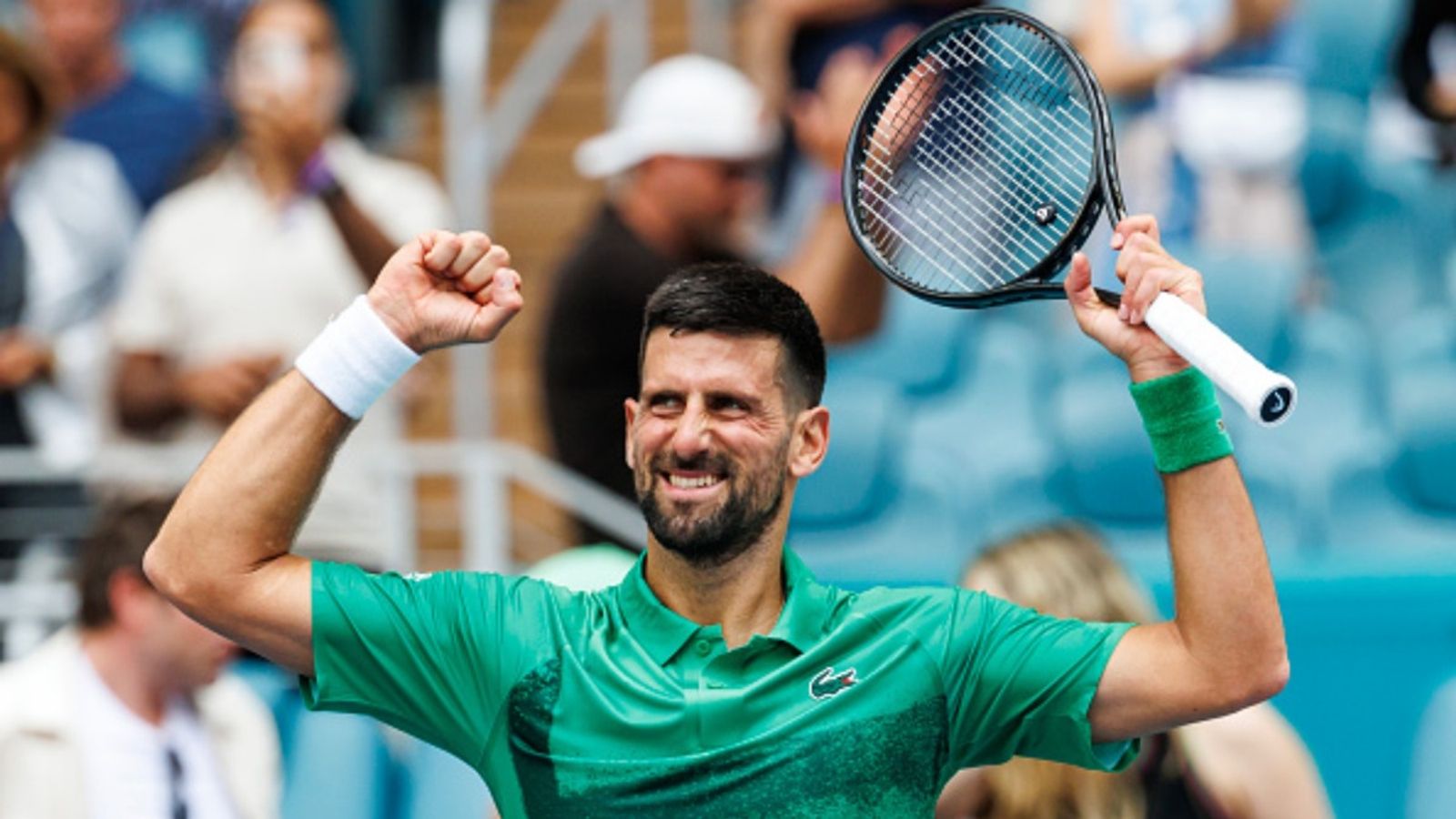Tennis titan Novak Djokovic pulled no punches in critiquing his own game after a grueling Miami Open quarterfinal clash against Sebastian Korda. Despite securing a straight-sets win (6-3, 7-6[4]) to advance to his first Miami semifinal since 2016, the Serbian legend admitted his performance fell short of perfection. Korda, the fiery American underdog, pushed Djokovic to the brink in a second-set thriller, exposing cracks in the 24-time Grand Slam champion’s armor.
While Djokovic’s serve dazzled, his post-match candor revealed deeper frustrations—a rare glimpse into the mindset of a perfectionist chasing excellence, even in victory.
Novak Djokovic’s brutal honesty
Behind the stats of Djokovic’s clinical serve—83% first-serve accuracy and 11 aces—lay a simmering self-reproach. The Serb confessed to uncharacteristic tentativeness, particularly in the second set, where Korda seized momentum to serve at 5-3. “I was too passive early on, waiting for his errors instead of dictating play,” Djokovic admitted, acknowledging he ceded control to Korda’s aggressive baseline onslaught.
This tactical misstep allowed the 25th-ranked American to unleash his explosive forehand and disrupt Novak Djokovic’s rhythm, turning what looked like a routine win into a nerve-fraying tiebreak.
The serve saved him
Djokovic’s first serve emerged as both savior and paradox. While he credited it as the “highlight of the match”—winning 84% of first-serve points—it papered over unforced errors and unsteady net approaches. “I was nervous,” he conceded, citing Korda’s ability to “take away time” with his rapid-fire shotmaking.
The 37-year-old’s reliance on his serve masked struggles in longer rallies, where Korda’s youthful vigor often outmaneuvered Novak Djokovic’s precision.
A champion’s adjustment
The turning point came when Djokovic recalibrated mid-second set, breaking back to force the tiebreak. “I managed to reassert myself,” he said, emphasizing clutch serving under pressure. Yet his relief post-match spoke volumes: “I’m just glad it ended in straight sets.” For a player of Djokovic’s caliber, surviving—not dominating—felt like a mixed victory.
What’s next?
With a semifinal berth secured, Novak Djokovic’s Miami run hinges on addressing these flaws. His candid critique signals urgency; passive play won’t suffice against higher-ranked foes. As he chases a record-breaking fourth Miami title, the question lingers: Can the GOAT transform self-criticism into semifinal supremacy?


